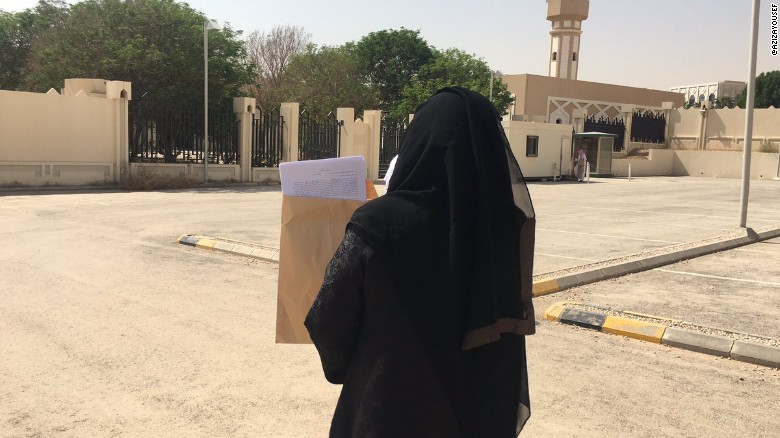by Yesim Usluca
Impunity Watch Reporter, Middle East
RIYADH, Saudi Arabia — Over 14,000 women in Saudi Arabia have signed an online petition to end the country’s practice of male guardianship.

The official number of signatures on the petition is currently reported as approximately 14,000. However, there are many more signatures that were submitted anonymously due to fear of reprisal from their families or the religious police. Furthermore, approximately 2,500 women have also sent personal messages to King Salman demanding the guardianship law be abolished.
An online women’s rights movement has been building for the past few months, and became more prevalent this summer after Human Rights Watch released a report on the guardianship system. The report found that the guardianship system is “the most significant impediment to realizing women’s rights in the country.” It gave way to the hashtag #IAmMyOwnGuardian, which has become the slogan for the campaign. Activist Aziza Al-Yousef, who has been fighting the guardianship system for a decade, stated that “women should be treated as a full citizen.” Ms. Al-Yousef further noted that the petitioners “want women over 18 or 20 to be treated as adults, to be responsible for their own acts and allowed to make their own decisions.”
Ms. Al-Yousef stated that she tried to deliver the petition to the Royal Court on Monday, September 26th. However, she was turned away and told to submit the petition by mail. Accordingly, as instructed, activists will now send the petition by mail. There has been no response to the petition by the Saudi Arabia government.
The petition is protesting a Saudi Arabia law in which women are treated as legal minors and close male relatives make important legal decisions on their behalf. The male guardian is typically a woman’s father or husband, if she is married. A widow may be required to seek permission from her son if she does not have any other male relatives of age. Alternatively, uncles and brothers can also serve as the male guardian. Under this law, women are required to obtain their male guardian’s permission to marry, travel, obtain a passport, rent property, file any legal claim, or be treated at a hospital, among other things. Furthermore, many institutions also require the guardian’s permission for a woman to pursue an education or hold a job. Many women report that their guardians extort them for money or other favors. Due to the limited recourse options available to women, some are “trapped with extortionate or abusive men.”
The Saudi Arabia government had agreed to abolish the guardianship system in 2009 as well as in 2013 in response to a review by the United Nation’s Human Rights Council. Although some reforms were instituted at the time, they did not provide basic rights to women.
For more information, please see:
The Guardian—Thousands of Saudis sign petition to end male guardianship of women—26 September 2016
Daily Mail—Saudi petition seeks ‘full’ rights for women—27 September 2016
CNN—Saudis petition king to end male guardianship system—26 September 2016
Inquisitr—Saudi Women Take Stand Against Male Guardianship, Oppression—26 September 2016